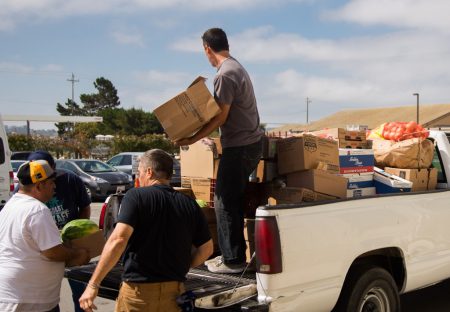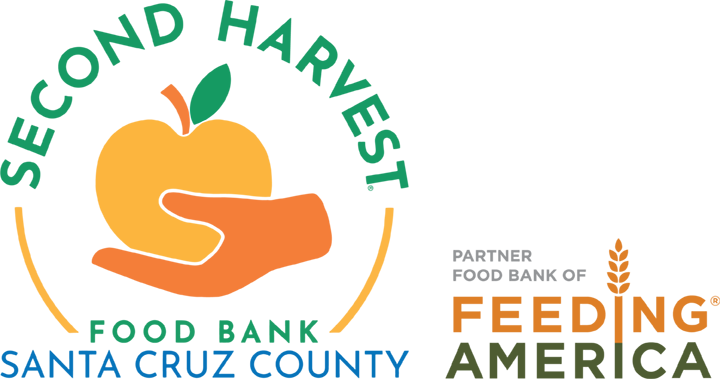Written by Chris Ryan
One of Second Harvest Food Bank’s greatest assets, allowing us to distribute over 8 million pounds of food each year very efficiently, is our dedicated volunteers, and one of the most dedicated groups of volunteers comes from an organization that’s also one our partner agencies: Teen Challenge Monterey Bay.
Teen Challenge is a faith-based, non-profit residential recovery program for adults with life-controlling problems including (but not limited to) drug and alcohol abuse. Entrance into the program is voluntary, though they do accept adults who are court-ordered. The program lasts a minimum of 13 months, and as clients progress through the program they take on different responsibilities, including volunteering at the Food Bank.
 “Teen Challenge is a tremendous help to us,” said Tiffany Wong, Second Harvest’s Agency Relations Manager. “They’re always willing to help with anything and they bring great attitudes and energy. We love having them volunteer here.”
“Teen Challenge is a tremendous help to us,” said Tiffany Wong, Second Harvest’s Agency Relations Manager. “They’re always willing to help with anything and they bring great attitudes and energy. We love having them volunteer here.”
One of those volunteers, named Luke, said that volunteering at Second Harvest makes him feel like a useful and productive member of society, which in turn helps him stay on the right track.
Teen Challenge clients help out in the distribution area two to three times a week, where Second Harvest’s agencies come and “shop” for food for their food pantries, soup kitchens, programs, and the like. They also roll up their sleeves in the warehouse sorting food donations and packing produce bags.
Operations Director Rudy Marquez said, “We’re in great debt to Teen Challenge. They have helped us out when the cards were stacked against us. We truly appreciate everything they do for us at the Food Bank.”
When Luke nears completion of the program, he’ll be encouraged to keep building on what he has learned and developed through the program and through volunteering at Second Harvest—participating in counseling sessions, completing his GED or enrolling in community college, developing new skill sets, and more.
But while Luke and his cohort from Teen Challenge are volunteering here, they’re helping Second Harvest provide food and nutrition to the community, including the very treatment program in which they’re enrolled. It’s a mutually beneficial relationship which makes the whole community stronger and healthier, too.
